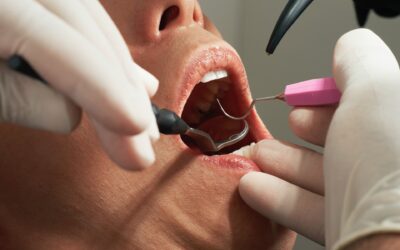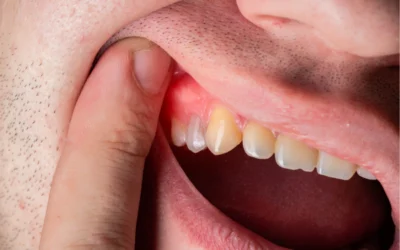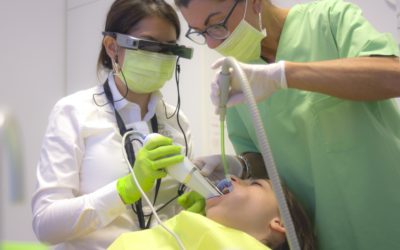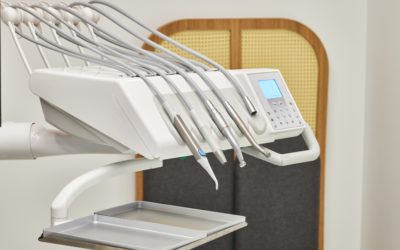IV Sedation Dentistry
If you are nervous or anxious we can help you by using IV dental dentistry.
Types Of Sedation Compared
- Nitrous Oxide: Also known as “laughing gas,” this type of sedation is inhaled and provides mild to moderate relaxation. It is suitable for less invasive procedures but may not be sufficient for those with severe dental phobia.
- Oral Sedation: Taken in pill form, oral sedation offers moderate relaxation but takes longer to take effect and may not be as easily adjustable during the procedure.
- General Anaesthetic: This method renders the patient completely unconscious and is typically reserved for the most severe cases of dental phobia or extremely invasive procedures. It requires a hospital setting and carries more risks compared to IV sedation.
Ensuring Oral Health With IV Sedation
Maintaining good oral health is crucial, and avoiding the dentist due to fear or anxiety can lead to serious dental problems. Dental IV sedation provides a way for anxious patients to receive the care they need without the associated stress and discomfort. Regular dental visits, even with sedation, are essential for preventing issues such as tooth decay, gum disease, and other oral health problems.
Dental IV sedation is a powerful tool for helping patients overcome dental fear and dental anxiety. By providing a deeply relaxing and pain-free experience, it allows individuals to receive necessary dental care comfortably and safely. Whether you’re a nervous patient or require sedation for tooth extraction, IV sedation can make your dental visits manageable and stress-free. Discuss with our team today the option of IV sedation to ensure your oral health.
Dental Sedation FAQs
What Is Dental IV Sedation?
Dental IV sedation is a form of conscious sedation that involves administering medication through an IV to relax and calm the patient during dental procedures. The patient remains conscious and responsive, but in a deeply relaxed state. Dental IV sedation is safe and effective when administered by a trained and licensed dentist or oral surgeon.
What Medications Are Used In Dental IV Sedation?
There are several medications used in dental IV sedation, including benzodiazepines, barbiturates, and propofol. The medication used depends on the patient’s medical history, current health status, and the length and complexity of the dental procedure. The dentist or oral surgeon will determine the appropriate medication and dosage for each patient.
How Is Dental IV Sedation Administered?
Dental IV sedation is administered through an IV, typically in the patient’s arm or hand. The medication takes effect quickly, and the patient will begin to feel relaxed and calm within a few minutes. The dentist or oral surgeon will monitor the patient’s vital signs throughout the procedure to ensure their safety and comfort.
Is Dental IV Sedation Safe?
Dental IV sedation is safe when administered by a trained and licensed dentist or oral surgeon. The dentist or oral surgeon will evaluate the patient’s medical history, current health status, and medication use before administering IV sedation. Patients with certain medical conditions may not be eligible for IV sedation. The dentist or oral surgeon will discuss the risks and benefits of IV sedation with the patient before the procedure.
Will I Be Asleep During Dental IV Sedation?
No, patients are not typically asleep during dental IV sedation. Instead, they are in a deeply relaxed state and may not remember much of the procedure. However, the patient can still respond to verbal commands and can communicate with the dentist or oral surgeon throughout the procedure.
How Long Does Dental IV Sedation Last?
The duration of dental IV sedation depends on the medication and dosage used. The effects of some medications may wear off quickly, while others may last longer. The dentist or oral surgeon will monitor the patient’s response to the medication and adjust the dosage as needed to ensure their safety and comfort.
What Are The Side Effects Of Dental IV Sedation?
Dental IV sedation is generally safe, but there are some potential side effects. These may include drowsiness, dizziness, nausea, vomiting, and headache. The dentist or oral surgeon will discuss the risks and benefits of IV sedation with the patient before the procedure and will monitor the patient’s response to the medication throughout the procedure.
Can I Drive Home After Dental IV Sedation?
No, patients who receive dental IV sedation should not drive or operate heavy machinery for at least 24 hours after the procedure. The medication can cause drowsiness and impaired coordination, which can affect driving ability. Patients should arrange for a responsible adult to drive them home after the procedure.
Learn More About Dental Sedation
Take a look at our articles that cover how dental sedation works, what to expect during treatment and how it can help if you feel anxious about visiting the dentist. These guides are here to reassure you and give you confidence in choosing the right support for your needs.
Did you know that one in five people have a fear of the dentist? Dental phobia, also known as dentophobia,...
All dental practitioners will agree that missing your routine check-up appointment is detrimental to your...
If you’ve ever stood in the toothpaste aisle wondering whether fluoride is something you need or should...
Noticing blood in the sink after brushing your teeth can be alarming, especially if it happens regularly....
Around 10 million adults in the UK suffer from dental anxiety, according to the Oral Health Foundation....
For many of us, going to the dentist is not our favourite activity. Going to the dentist can be one of the...
We all want the perfect smile with beautiful white teeth, but daily life works against us, with coffee, tea,...
Book An Appointment For Private Dental Care in Cannock
"*" indicates required fields











